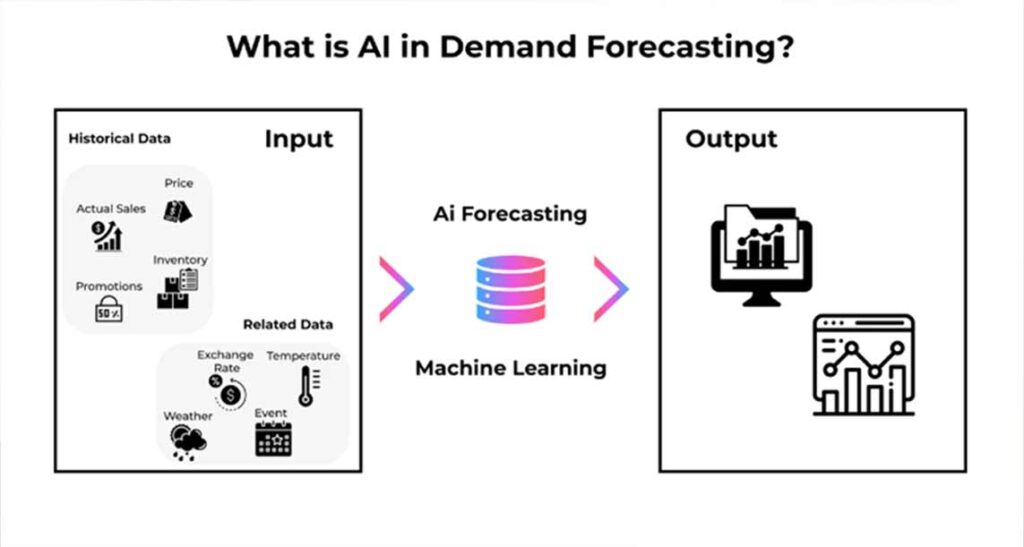Artificial Intelligence (AI) is no longer just a buzzword or something that will be seen in future! In fact, it is the present and now actively reshaping how businesses interact with the consumers and the mattress industry is no exception. It would not be wrong to say that globally, the mattress industry is undergoing a significant transformation, driven by the integration of AI which is leading to more personalisation and convenience for the customers and redefining their shopping experience. As for the mattress retailers, AI is greatly helping them in understating the consumer behaviour through a data-driven approach so that they are able to create seamless and tailored experiences both online and in-store. From personalised sleep solutions to optimised inventory management, AI is positively reshaping how retailers operate.
As per Market Report Analytics’ report on AI Smart Mattress Future Forecasts: Insights and Trends to 2033, “The global AI smart mattress market estimated at $2 billion in 2025, is projected to exhibit a Compound Annual Growth Rate (CAGR) of 15 per cent from 2025 to 2033, reaching an estimated value of $6 billion by 2033. This robust growth is expected to be fueled by the increasing adoption of smart home technology, growing awareness of sleep health, and continuous technological advancements.”
These days, customers worldwide are demanding improved sleep quality and this can be easily achieved by AI smart mattresses as they offer features such as temperature regulation, sleep tracking and personalised comfort adjustments, making them highly attractive. In addition to it, increasing sleep disorders is also fueling the need for use of AI in the mattress segment. Thus, various international players are actively innovating on a continuous basis to cater to the diverse consumer needs and preferences. Here, it needs to be noted that while the Indian mattress market is still at a nascent stage and the country is only gearing up to these innovations and experiments are being conducted using AI, global international examples are definitely providing a glimpse into the future of mattress retail. These companies are clearly demonstrating how transformative AI can be used in optimising product recommendations, improving inventory efficiency and elevating customer engagement, thereby providing a wholesome shopping experience.
AI easing the overall mattress shopping exercise
Buying a mattress has traditionally been a daunting experience which is filled with endless choices, technical jargons and the lingering doubt that whether you’ve made the right decision. However, AI has revolutionised this journey completely. By guiding customers toward the ideal mattress and increasing satisfaction even after the purchase, AI is making mattress shopping a smarter, more intuitive and deeply personalised experience.

Here is a look at how AI is redefining mattress shopping and the key global mattress players employing AI.
1. Offers body scanning leading to personalised sleep solutions and shopping experience: For decades, mattress shopping largely depended on the physical feel and generic recommendations. However, now AI is replacing this guesswork with intelligent and data-driven hyper-personalisation. AI-powered recommendation enginesanalyse data like sleep posture, body type and weight, firmness preference, health concerns and even partner needs to suggest the perfect mattress to the customers. It offers ease in decision making to the customers and increases conversion rate drastically. Ravi Pandit, Director-Sales & Marketing, Repose, says, “Particularly, in the day and age where more and more importance is being given to the quality of sleep, AI in mattress shopping can actually come to help and lead to more customer satisfaction by offering personalised recommendations.”
Here, the American company Sleep Number Corporation, Casper Sleep and Bedgear headquartered in New York, China-based DeRUCCI Healthy Sleep Co. and European retailer Swiss Sense present few good case studies.
- Sleep Number’s smart beds for real time sleep data integration: Sleep Number has pioneered the use of AI in creating smart beds that adapt to individual sleep patterns. Their beds have sensors that monitor movements, heart rate and breathing by adjusting the firmness and provide real-time support to enhance sleep quality while also feeding data back into the brand’s ecosystem for future personalisation. For example, The Sleep Number 360 smart bed offers personalised comfort by responding to the sleeper’s needs throughout the night.
- AI-driven recommendations by various companies: Sophisticated AI algorithms are employed by global companies like Casper to analyse customer data which includes responses to quizzes and surveys about sleeping positions, firmness preferences and body types and even partner compatibility. This information is helping the company to generate personalised mattress recommendations that align with each customer’s unique sleep needs, significantly improving conversion rates and reducing return rates. Another company i.e., European retailer Swiss Sense has introduced the SleepLAB Bodyscan, an AI-powered mattress recommendation tool developed in partnership with Motesque. This system analyses a customer’s sleeping behaviour and body shape to provide tailored mattress advice, both online and in-store. Take another example. China-based DeRucci Healthy Sleep Co., Ltd’s Magic Cube mattress features an AI device that scans and analyses a customer’s body type in just 20 seconds. Within 40 more seconds, it determines the ideal sleeping position, offering a highly personalised sleep solution.
- Bedgear’s Sleep Lab experience: Bedgear’s Sleep Lab utilises AI technology to conduct over 500,000 calculations on a customer’s body, so as to determine the precise personalised fit for pillows and mattresses. This approach of the company is helping it in ensuring that each customer receives a product which is best suited for their specific sleep requirements.
So, by enabling the customers to make more informed and personalised decisions, AI is helping to reduce the chances of dissatisfaction and costly product return.
2. Enables effective inventory management and demand forecasting: AI isn’t just changing the front-end experience in the mattress industry. It’s optimising the backend too, especially inventory management and demand forecasting. So, inventory management can become more efficient with the use of AI as it can help in forecasting the demand correctly, minimise stockout situation and reduce overstock issues. Simply put, the predictive analytics can ensure the availability of right products at the correct time and place which can improve retailer’s operational efficiency and revenue to a very large extent. In this regard, Mattress Firm, Inc. which is considered as one of the largest mattress specialty retailers in the U.S. deserves a mention. Partnering with Invent.ai, the company has implemented AI-driven inventory solutions.
The main purpose of this collaboration is to enhance demand forecasting, effective store and distribution center replenishment and easy merchandise financial planning. By implementing AI, the company seeks to optimise its supply chain operations and strategic planning. Even major American retailers like Walmart and Target that keep mattresses are employing AI-powered systems to prevent product shortages and optimise inventory management. This is because these AI-driven tools predict stock shortages and improve accuracy thereby; enabling dynamic forecasting that reacts swiftly to consumer behaviour and economic shifts.

3. Enhances the in-store experiences: AI is also changing how consumers engage with the mattresses in brick-and-mortar stores thereby, making physical spaces smarter and not obsolete. In order to enhance the shopping experience at their stores, many brands are now making use of the Augmented Reality (AR) applications, powered by AI. This
allows customers to visualise how a mattress would look and fit in their bedroom using their smartphones. Further,
many brands have set up AI-powered kiosk at their stores where customers can interact and tell about their sleep
preferences and physical characteristics. The system the analyses this data and recommends specific mattresses
that best suit their needs. Many global companies have also created interactive floor plans of the showroom to allow
customers to virtually explore different mattress configurations and see how they would look in various room
layouts.
4. Presents omnichannel retail opportunity: The future of mattress retail definitely seems to be omnichannel retail marketing strategy and here also comes the importance of AI as it can easily help in seamless integration of online and offline data which is the key for omnichannel retailing. Through AI, mattress retailers can study online behaviour by clicks, bounce rate and dwell time and then give product recommendations to the customers. In addition, data about customer preferences can be easily gathered through the in-store AI kiosks and body scanners and then this data can be synced with the CRM platforms for remarketing purposes and thus, a cohesive shopping experience can be created.
5. Boosts marketing effectiveness: Highly targeted marketing campaigns that are based on consumer behaviour and preference and purchase history can be created by making use of AI-driven insights. This can lead to higher customer engagement, better conversion rates and improved Return on Ad Spend (ROAS).
6. Delivers scalable customer support: AI chatbots and virtual assistants can answer all the customer queries at any point of time, providing immediate support and guiding users throughout the mattress selection process, thereby providing pre-purchase assistance as well as post-purchase care. This can boost the Customer Lifetime Value (CLV) to a very large extent through continuity of service and personalisation. So, whether it is a smart quiz on a website, a chatbot guiding all the queries of the customers or an in-store body scanning tool, AI can ensure consistent and customised engagement across all touchpoints.
That said, with the sleep industry becoming more competitive and customers choosy, mattress retailers need to move ahead of traditional selling techniques. Here, AI can come to aid them which has the potential to blend technology with empathy and thus, can create wholesome shopping experience that resonate with the modern buyers.
AI in Indian mattress retail market: Opportunities and challenges
While countries like the U.S., Germany, and China are increasingly leveraging the benefits of AI across all their retail sectors including mattress, India’s mattress industry is still lagging behind. This is because of low investment in R&D among domestic brands, lack of integrated customer data platforms, poor adoption of smart bed technology due to cost and awareness and fragmented retail ecosystem where AI tools don’t scale easily. Other factors such as infrastructure limitations, consumer awareness and investment constraints also pose as a huge challenge.
Pandit notes, “The major challenge in India is that mattress still occupies a low mindshare. So, despite of people spending nearly 6-7 hours in their bed, they don’t give importance to the mattress. So, when the product itself is given low attention, then innovations and experiments in that product category becomes difficult. So, implementing AI in the mattress segment in India is very difficult. Secondly, in India, customers still don’t see mattress as an investment. They see it as expenditure. So, most of the people, still don’t want to buy a mattress even if it is slightly costly. So, cost of employing AI is also an issue in the country. That said, AI is the future of the mattress industry.”
You may say that while India is just beginning to explore on this front, the opportunity for transformation is massive. As per one of the Inc42’s report, India’s D2C market is projected to hit USD 100 billion by 2026 and mattress brands like Wakefit, Sleepyhead, and The Sleep Company are gradually investing in personalisation and data-driven recommendations to stand out. These companies are making use of interactive quizzes and AI to match their users with the right product. So, this can definitely be seen as the beginning of the AI revolution in the Indian mattress retail industry. As India gradually develops its technological infrastructure, adoption of AI-driven tools may help in providing a very smart, smooth and more engaging shopping experience for the mattress customers online and in-store.
Industry in 5 Minutes
AI can hugely alter the mattress shopping experience for good by enhancing overall customer satisfaction. In fact, AI can actually bring about a change in how mattresses are bought, recommended, tested and sold. So, with the use of AI, the future of mattress retail can be seen as intelligent, intuitive and increasingly driven by algorithms.
Retailers and manufacturers who embrace AI-driven tools can beautifully define the shopping experience of the customers of tomorrow and in doing so, they would be able to develop deeper customer relationships, higher conversion rates and more sustainable business models. Simply put, now AI cannot be seen just as a futuristic add-on, it can be considered as a driver of increased revenue, loyalty and operational efficiency. So, brands that would use AI could significantly outperform their peers. Thus, AI is definitely the future of Indian mattress retail segment.
CEO Corner
Prashanth Hebbar, Director, Knobly Consulting
Augmented Reality (AR), powered by Artificial Intelligence (AI), is transforming how consumers shop for mattresses online. With just a smartphone or tablet, shoppers can virtually place a mattress in their bedroom to visualize its size, color, and overall fit eliminating guesswork and boosting confidence in their purchase decisions.
This immersive experience reduces the need for physical store visits, making online shopping more convenient and personalized. But the innovation doesn’t stop there. AI steps in to analyze thousands of customer reviews, distilling them into clear, actionable insights. By summarizing common feedback and highlighting key pros and cons, AI helps shoppers quickly understand how each mattress performs especially for people with similar sleep preferences, body types, or comfort needs. Together, AR and AI create a seamless, informed, and satisfying shopping journey saving time, reducing returns, and making bedtime blissfully simple.
Working towards incorporating AI, the mattress retailers in India can employ basic strategies:
- Build smart recommendation tools: Retailers can incorporate simple AI-based quizzes for gauging the right product fit on their website.
- Invest in the virtual sales assistants: Retailers can deploy Chatbots for 24/7 customer support.
- Run pilot AI programs in your physical stores: Retailers can test smart in-store tech like body scanning devices. Further, the staff should be trained to use AI-generated recommendations.
- Use AI insights for optimising the marketing strategy: Through AI tools, retailers can understand the customer behaviour and buying patterns. This can help them in drawing customised marketing campaigns.
- Create a unified omnichannel experience: Retailers can merge consumer data across websites, mobile apps and physical shops so as to create a seamless shopping experience.


